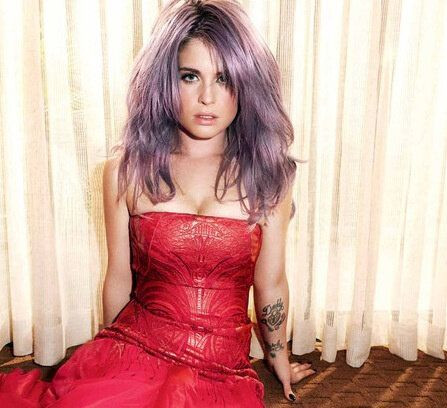Kelly Osbourne To Release Clothing Line That Includes Plus Sizes: ‘Everyone Deserves To Wear Fashion’

Seventy pounds ago, Fashion Police co-host Kelly Osbourne may not have imagined that she would have such an influential voice in the fashion industry. Now, noticeably slimmer at age 28, Osbourne is set to launch her own clothing line, which will, of course, include plus sizes.
“You know I was having fun but no one takes notice of a fat girl in fashion,” Osbourne said in an interview with the blog Fashionista. “That’s the truth! It’s sad. That’s why I love women like Beth Ditto who are doing their own clothes. That’s why when my line comes out I’ll never make anything that won’t be translated to plus-size as well. Because everyone deserves to wear fashion.”
Attendees at Hollywood’s Beautycon L.A. Summit were fortunate enough to receive the scoop that Osbourne did, indeed, receive the green light to start her own fashion line and have full creative control.
"I had one of the most exciting meetings of my life this week — it pretty much green-lit my clothing line," Osbourne told the attendees. "When I sat down in this meeting and they said, 'Yes, you have creative control and of course you can do plus size,' I was like, 'It's happening!'"
Osbourne has struggled with her weight since she was a teen and says that she thinks of herself as a “FFP,” or former fat person. In the United States alone, the obesity rate is 28.5 percent, but not everyone who wears a size 10 or larger is obese. Sixty-seven percent of the purchasing population is what the fashion industry would consider “plus-sized,” but few stores offer a wide variety of clothing for plus-sized people — especially women.
By including plus sizes in her line, she is tapping into a growing market that is underrepresented in fashion. Stores like H&M and Forever 21 have begun including plus sizes in their merchandise, which has proven to be great business for the brands.
But, there are still some stores that refuse to carry larger-sized clothing, alienating a fairly big portion of the purchasing population. Most notably, Abercrombie & Fitch came under fire recently for refusing to sell clothes for plus-sized women and girls. In an interview with Salon magazine, Abercrombie’s CEO Mike Jeffries said that larger people don’t fit into the brand’s “cool kids” business model.
"Candidly, we go after the cool kids," said Jeffries. "We go after the attractive all-American kid with a great attitude and a lot of friends. A lot of people don't belong [in our clothes], and they can't belong. Are we exclusionary? Absolutely."
Perhaps, with the help of fashion industry influencers like Osbourne, Abercrombie and brands like it will begin to be more inclusive. Meanwhile, it will be interesting to see what fun, quirky looks the lavender-hair star comes up with.



























